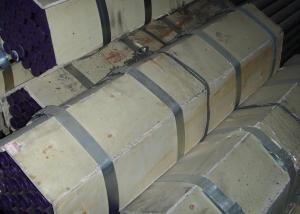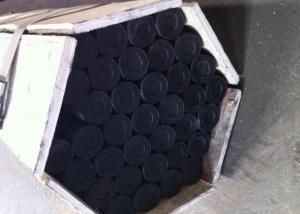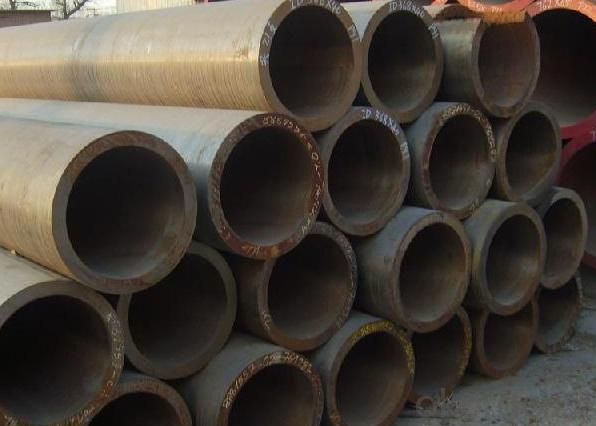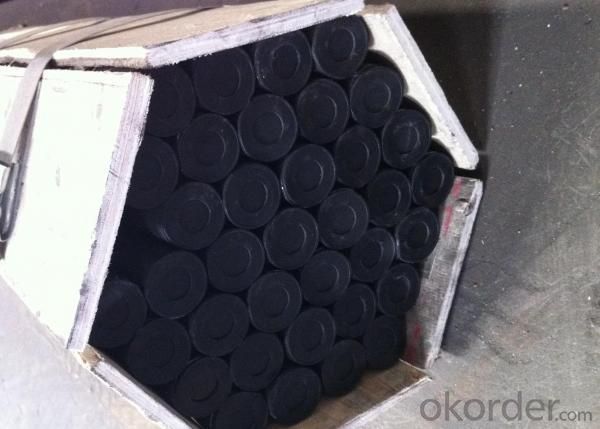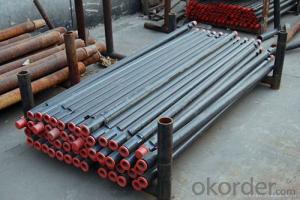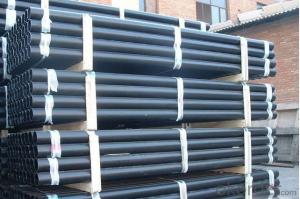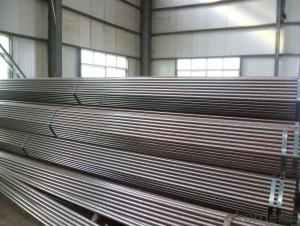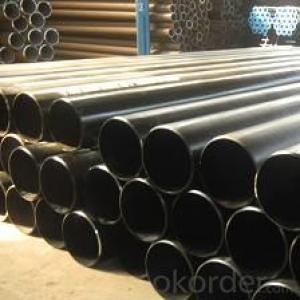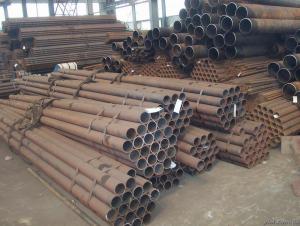Seamless Carbon Steel Tubes
- Loading Port:
- China Main Port
- Payment Terms:
- TT or LC
- Min Order Qty:
- 20MT m.t.
- Supply Capability:
- 5000 Tons Per Month m.t./month
OKorder Service Pledge
OKorder Financial Service
You Might Also Like
Usage/Applications: For manufacture wall panel,economizer,reheater,superheater and steam pipeline of boilers. | |||||||||||||||||||||||||
Packaging & Delivery:
Each bundles pipes will be bundled with 6-8 pcs steel strips and with shipping marks and 2 nylon strips
40-50 days delivery on china port upon receiving orinigal LC or prepayment.
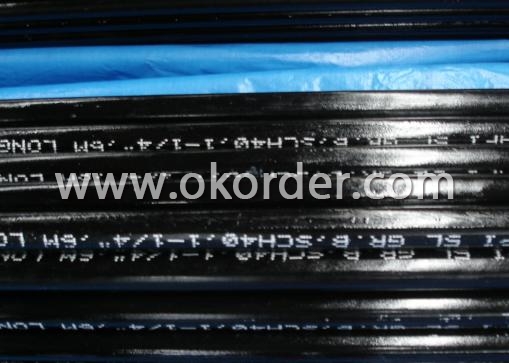
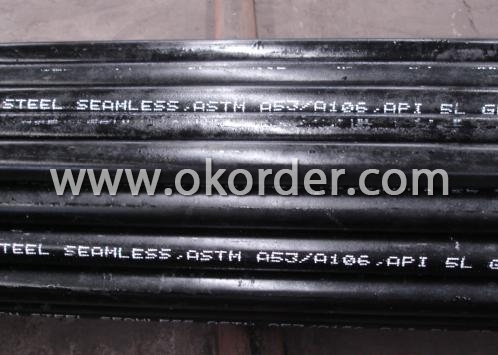
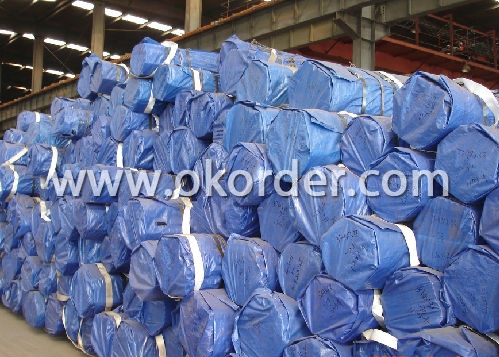
- Q: How to descaling galvanized steel pipe?
- Galvanized steel tubes will not rust in principle.... Batch rust with weak acid water immersion, individual can use steel wire brush brush on it.
- Q: What are the lengths of scaffold steel tubes?
- Scaffolding steel pipe standard length is 6 meters, for easy use, respectively, 6 meters, 3 meters, 2 meters, 1.5 meters, 1 meters, etc., if there is a special length, you need to intercept.
- Q: What is the role of steel pipes in sewage systems?
- Steel pipes are commonly used in sewage systems as they provide durability, strength, and resistance to corrosion. They serve the crucial role of transporting wastewater, sewage, and other fluids from buildings to treatment facilities or disposal sites. Steel pipes are able to withstand the high pressure and gravity flow of sewage, ensuring the safe and efficient conveyance of waste materials.
- Q: Can steel pipes be used for underground transportation tunnels?
- Underground transportation tunnels can indeed utilize steel pipes. For a multitude of purposes like water, gas, and sewage transportation, steel pipes are commonly employed in the construction of these tunnels. Renowned for their resilience, durability, and ability to resist corrosion, steel pipes are remarkably suitable for underground applications. With the capacity to endure the weight and pressure exerted by the nearby soil, they can also be reinforced to guarantee stability. Moreover, steel pipes offer flexibility in tunnel design as they can be manufactured in various sizes and lengths. Nonetheless, one must carefully consider factors such as soil conditions, load-bearing capacity, and potential environmental impacts before opting for steel pipes in underground transportation tunnels.
- Q: What is the load-bearing capacity of steel pipes?
- The load-bearing capacity of steel pipes is influenced by a range of factors, including diameter, wall thickness, and steel grade. In general, steel pipes exhibit excellent load-bearing capacity due to their inherent strength and durability. The determination of load-bearing capacity involves utilizing engineering calculations and testing techniques. These calculations take into account factors such as the applied load, pipe dimensions, and material properties of the steel. To accurately ascertain the load-bearing capacity of specific steel pipes for a particular application, it is crucial to refer to engineering standards, guidelines, and consult with a structural engineer.
- Q: How do steel pipes differ from other types of pipes?
- Steel pipes differ from other types of pipes in a few key ways. Firstly, steel pipes are known for their strength and durability. They have a high resistance to heat, pressure, and corrosion, making them suitable for a wide range of applications. This strength also allows steel pipes to withstand heavy loads and provide a long service life. Another distinguishing feature of steel pipes is their versatility. Steel pipes can be manufactured in various shapes and sizes to meet specific project requirements. This adaptability makes them a popular choice for a wide range of industries, including construction, oil and gas, water treatment, and manufacturing. Steel pipes also offer excellent thermal conductivity, meaning they can efficiently transfer heat from one area to another. This makes them suitable for applications such as heating and cooling systems, as well as for transporting hot fluids or gases. Furthermore, steel pipes are known for their resistance to fire. They have a high melting point and do not easily catch fire or contribute to the spread of flames. This property is crucial in applications where fire safety is a concern, such as in buildings or industrial facilities. Lastly, compared to other types of pipes, steel pipes have a higher initial cost. However, their long-term benefits, such as their durability and low maintenance requirements, often outweigh the initial investment. Steel pipes are also highly recyclable, making them an environmentally friendly choice. In summary, steel pipes stand out from other types of pipes due to their strength, durability, versatility, excellent thermal conductivity, fire resistance, and recyclability. These qualities make steel pipes a preferred option for a wide range of applications in various industries.
- Q: What are the different pressure ratings for steel pipes?
- The different pressure ratings for steel pipes can vary depending on factors such as pipe size, wall thickness, and the type of steel used. Common pressure ratings for steel pipes range from 150 psi (pounds per square inch) to 2500 psi or higher.
- Q: What is lined pipe?
- Is the coating of the inside of the pipe, such as pipe conveying sulfuric acid will corrode, corrosion, but soft plastic pipe, buried in the ground to wall thicker, then you can use the liner and characteristics of hard for using steel pipe laying, sheathed in the steel pipe into the thin plastic tube, it can transport the sulfuric acid,
- Q: What is the cost of steel pipes compared to other piping materials?
- The cost of steel pipes can vary depending on factors such as size, thickness, and grade. However, generally speaking, steel pipes tend to be more expensive than other piping materials such as PVC or copper. This is due to the durability, strength, and longevity of steel pipes, making them a preferred choice for various industrial and construction applications.
- Q: Are steel pipes resistant to impact or external forces?
- Yes, steel pipes are generally resistant to impact or external forces due to their inherent strength and durability. They can withstand high pressure, heavy loads, and harsh environmental conditions, making them suitable for various applications, including construction, transportation, and industrial purposes.
1. Manufacturer Overview
| Location | Wuxi, China |
| Year Established | 1991 |
| Annual Output Value | 300,000Tons |
| Main Markets | Europe; Southeast Asia; etc. |
| Company Certifications | API 5L;API 5CT;API Q1;ISO/TS29001 |
2. Manufacturer Certificates
| a) Certification Name | |
| Range | |
| Reference | |
| Validity Period |
3. Manufacturer Capability
| a) Trade Capacity | |
| Nearest Port | Wuxi; Shanghai |
| Export Percentage | 41% - 50% |
| No.of Employees in Trade Department | 3900-4000 People |
| Language Spoken: | English; Chinese; Spanish |
| b) Factory Information | |
| Factory Size: | Above 450,000 square meters |
| No. of Production Lines | Above 10 |
| Contract Manufacturing | OEM Service Offered;Design Service Offered |
| Product Price Range | Average |
Send your message to us
Seamless Carbon Steel Tubes
- Loading Port:
- China Main Port
- Payment Terms:
- TT or LC
- Min Order Qty:
- 20MT m.t.
- Supply Capability:
- 5000 Tons Per Month m.t./month
OKorder Service Pledge
OKorder Financial Service
Similar products
Hot products
Hot Searches
Related keywords

